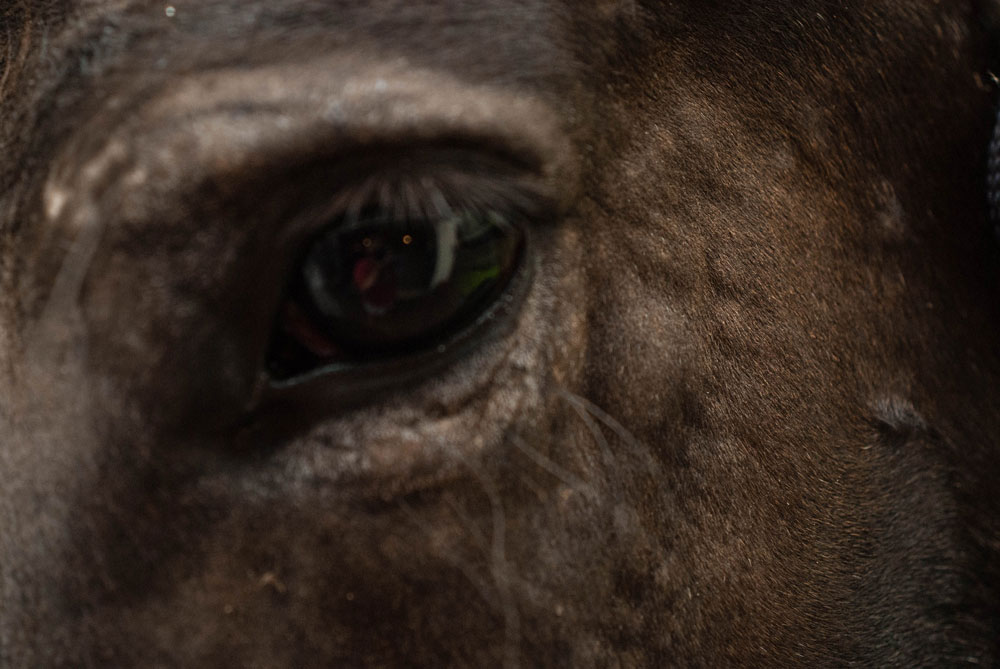
The most common causes of hives include sensitivity reactions to biting flies or insect stings and allergies.
“Horses rarely have food allergies; they are more likely to have reactions to pollens, molds, etc. It is somewhat similar to people with hay fever, except with horses the target organ is often the skin,” said Stephen D. White, DVM, DACVD, Professor and Chief of Service, Dermatology, School of Veterinary Medicine, University of California, Davis.
The hives generally appear suddenly after the horse comes into contact with whatever sets off the reaction. Hives might be patchy over a specific area—such as the neck and shoulders—or over the whole body.
In an acute case, the horse is usually given antihistamine and steroids to decrease the reaction.
Once the hives are gone, the horse is weaned off of the steroids and the owner might make changes in management of that horse to see if the cause of the problem can be identified, if it hasn’t been figured out from the history. If the horse recently was given a vaccination or new medication, or something else that might have caused the reaction, it might just be a one-time occurrence.
Otherwise, the owner might remove one variable at a time and note when the problem goes away in a process of elimination.
Most horses only experience hives on rare occasion—perhaps after coming into contact with a harsh detergent used on the horse’s blanket, or new hay, or new load of shavings (for bedding) that has a different chemical treatment.
“A horse with chronic hives that only go away after steroid treatment, then come right back again should be closely evaluated,” White said.
Owners also need to see if the fly repellent program for the horse is adequate (if the problem might be due to fly bites) or if the horse might have an allergy to fly bites.
“Treatment for an allergy would be antihistamines and maybe hyposensitization injections or what people call allergy shots,” noted White. “These injections are usually effective in about 70% of the horses that get hives, but it’s important to remember that the effects might not be evident for 6 months to 2 years. So this requires a major commitment on the part of the owner.”


